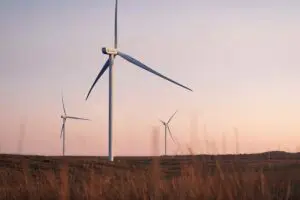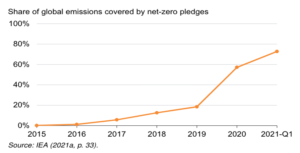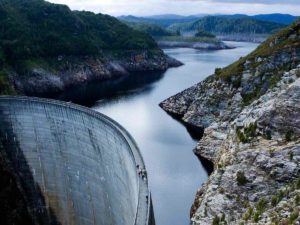A trio of industry and research organisation will collaborate to develop a vision for Australian infrastructure under a zero emissions environment, releasing an issues paper to kick-start industry collaboration.
The issues paper has been released by the Infrastructure Sustainability Council of Australia (ISCA), ClimateWorks Australia and the Australian Sustainable Built Environment Council (ASBEC), which are all collaborating on the project.
In issuing the paper, titled ‘Reshaping Infrastructure for a net zero emissions future’, the groups said that it was crucial that work begins now to understand how climate change and emissions reduction policies will influence Australia’s infrastructure developments, particularly given that much of the infrastructure being built now will still be in operation by 2050.
The study will look at how the transport, energy, water, communications and waste infrastructure sectors will be transformed by a shift to zero emissions, as well as the building and construction industry.
The groups believe this work is pertinent, as many governments, investors and industry participants have made high-level commitments to achieving zero net emissions, but have yet to fully incorporate these commitments into policies and practise.
“Infrastructure Australia notes that governments often have the ambition to incorporate climate change considerations into their infrastructure projects, but that final outcomes can fail to reflect these intentions due to the lack of a consistent approach in translating goals into action,” the issues paper says.
“Infrastructure is facing pressure from both the public and private sector to prepare for net zero emissions,” ISCA CEO Ainsley Simpson added.
“In addition to state and territory commitments, private investors are increasingly aligning their portfolios with net zero emissions.”
The collaboration will seek to develop a vision for infrastructure in Australia under a net zero emissions scenario, with infrastructure projects currently directly contributing to around 15 per cent of Australia’s greenhouse gas emissions and as much as 55 per cent indirectly.
The group will look at how the emissions footprint of infrastructure can be reduced over its full lifecycle, including reductions in emissions from construction activities and building materials, reduction in emissions from operations through investments in energy efficiency and waste reduction, as well as optimising infrastructure design to avoid unnecessary projects.

“Direct emissions occur across the life-cycle including in procurement, construction, operations and decommissioning. But the majority of emissions are associated with the end use of assets and the activities they enable,” senior project manager at ClimateWorks Australia Michael Li said.
“For example, providing public transport infrastructure close to population centres can reduce local road transport emissions.”
The issues paper will be used to stimulate discussion amongst industry representatives, including how a zero emissions target would factor into decisions around infrastructure design, construction and operation.
“We invite stakeholders from across the infrastructure sector to collaborate and participate in solutions-focused discussions that are essential to reshaping infrastructure for a net zero emissions future,” Simpson added.
Suzanne Toumbourou, the executive director of ASBEC, said that now was also a crucial time to talk about what Australia’s infrastructure must look like into the future, as substantial rebuilding efforts are underway to repair damage caused by the recent summer’s natural disasters.
“With billions of dollars in the infrastructure pipeline, and the need to rapidly rebuild infrastructure after this summer’s natural disasters, now is the time for consensus about what role infrastructure can play in achieving a net zero emissions future,” Toumbourou said.
ISCA, ClimateWorks and ASBEC will facilitate various opportunities for industry participants to respond to the issues paper, and interested groups have been invited to approach the groups directly with input.
The issues paper and the development of the infrastructure vision have been funded by the Clean Energy Finance Corporation and the Queensland Government.









